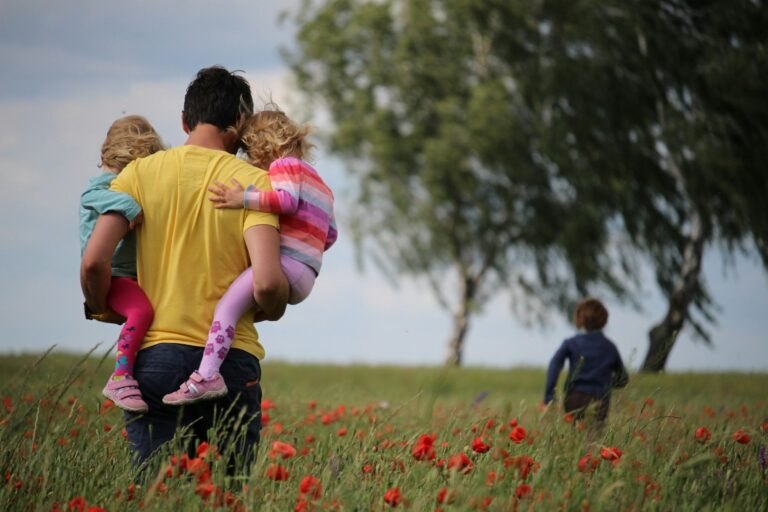What Is Eco-Anxiety? Causes and Symptoms
 You have probably seen news about a natural disaster in the last few months. It could’ve been a wildfire, hurricane or blizzard. The reporting fills you with dread, but you’re not sure why. The amplifying climate crisis has created its own brand of anxiety. What is the cause of eco-anxiety? Learn to identify its symptoms and fight them with productivity and optimism.
You have probably seen news about a natural disaster in the last few months. It could’ve been a wildfire, hurricane or blizzard. The reporting fills you with dread, but you’re not sure why. The amplifying climate crisis has created its own brand of anxiety. What is the cause of eco-anxiety? Learn to identify its symptoms and fight them with productivity and optimism.
What Is Eco-Anxiety?
Eco-anxiety refers to mental discomfort related to climate change. Extreme empathy for the planet’s well-being could manifest as psychological distress. People experiencing it fear the anthropogenic facets of climate change may be irreversible. Some feel so pessimistic that it leads to apathy.
It’s not an official condition, but its relentlessness deepens if you’re often exposed to natural destruction. The American Psychology Association reports that eco-anxiety is threatening enough to cause depression, PTSD, suicide and violence.
If you feel like this, you are likely an environmentalist or an advocate for the planet already. Younger generations are more prone to eco-anxiety. Around 67% of Americans between 18 and 23 cite the crisis as worsening their mental health. Anyone who cares about the world is susceptible to it, and understanding the causes is the first step to coping.
What Is the Cause of Eco-Anxiety?
The catalysts for your eco-anxiety may differ from others. It depends on what you interact with in your community, workplace and home. The general cause is consistent subjection to environmental problems.
Some people may live in natural disaster-prone environments. You may have already experienced trauma related to a storm or wildfire, leaving a permanent mark on your mind. Anxiety compounds if the events cause displacement or the loss of loved ones or prized possessions.
You don’t have to suffer from a climate disaster to experience eco-anxiety. People who work in destructive industries like fashion or manufacturing may worry they contribute to the problem. Additionally, those who work with nature in forestry, agriculture or animal care interact with stressful triggers daily. They witness species in distress or struggling in their habitats.
Unfortunately, education and awareness are other causes. Exposure to climate statistics, news and social media reporting feeds unwelcome thoughts. You understand how important fighting climate change is and get upset people aren’t doing more. Reading about specific topics may spark eco-anxious thoughts, such as:
- Biodiversity loss
- Rising sea levels
- Global warming
- Exploitation of natural resources
- Ocean pollution
- Natural disaster frequency
- Deforestation
This cannot prevent you from interacting with these subjects. Curiosity and knowledge are the best weapons against the climate crisis.
What Are the Symptoms of Eco-Anxiety?
Many generalized anxiety disorder symptoms are also seen in eco-anxiety, affecting physical and mental health.
What are significant physical health changes people with eco-anxiety may experience? Sleep disturbances are one of the most notable. Worrisome thoughts could cause insomnia or frequent waking from nightmares. Reduced mental resilience could lead to poor diet and exercise routines. Some may exacerbate this by engaging with toxic coping mechanisms or substances.
Mental and social health compromises are equally crucial to heal. Individuals with eco-anxiety must fight grief, social tensions, trauma and memory issues. Many report losing a sense of self, suggesting they have no autonomy given how bad the climate crisis has become. Panic may become irrational in dire circumstances, leading to fatalism and helplessness.
You may also experience anxiety attacks, which affect approximately 31% of adults at some point in their lives. These are common after bouts of negative thinking and not prioritizing your needs. You must identify the climate concerns triggering your eco-anxiety to find ideal solutions. Use these techniques to discover what they are and how to fight them:
- Keep a journal of your feelings as anxious thoughts develop.
- Be honest about what stresses you out most in climate discourse.
- Build patience.
- Seek professional guidance if concerns become hard to handle.
What Are Ways to Recover?
If you feel afflicted by eco-anxiety, try these options to reduce its impact on your mental health. Engaging in these activities may also promote climate change mitigation.
Practice Climate Optimism
Climate change discourse is pessimistic, perpetuating a doom-and-gloom perspective. Some say the damage is too far gone, and there’s nothing to save humanity now. These statements mean to demoralize activists. The planet will perish if those who care the most internalize these claims.
Instead, practice informed climate optimism to keep spirits high. Fill your well of knowledge with facts from reputable sources proving mitigation efforts work. Humans wouldn’t have saved endangered species if not for collaboration and hope. Renewable energy is on an upward trend worldwide. These realities must realign your point of view.
Any time you hear someone saying temperatures will never come down, tell them how well humans are doing. These efforts matter.
Do Your Part
People choosing sustainable lifestyles are more likely to experience happiness and fulfillment. Calm eco-anxiety by participating in environmentally beneficial activities.
Start a new sustainable habit, like composting or taking shorter showers. Volunteer and connect with others in the community who make a difference. Ensure you vote in relevant elections for eco-friendly legislation. The actions will give you a greater sense of agency and purpose for fighting climate change.
Engage in Responsible Consumption
Climate-related coverage sensationalizes disasters. While the negative impacts are real and severe, it doesn’t mean viewers can’t question what they consume. If you feel yourself spiraling into eco-anxiety because of something you read or saw in the news, ask these questions:
- Is this news coming from a reputable, science-backed source?
- Is this source attempting to manipulate feelings because of a political agenda?
- Is the reporting using language to incite emotional responses, like anger or fear?
- Am I only engaging with negative news, skewing my perspective on the world?
Many publishers don’t relay events with neutrality. Ensure you balance your environmental awareness and education with good and bad news from reliable outlets. Valuable resources will provide data and solutions for climate fears.
Ending Climate Stressors
What is the cause of eco-anxiety if not the intensity of nature’s response to human influence? More people are experiencing these feelings yearly as the climate crisis seems to persist without end. However, everyone must leverage their stress. It’s possible to quell toxic thoughts, transforming them into something more positive and productive for the planet.


